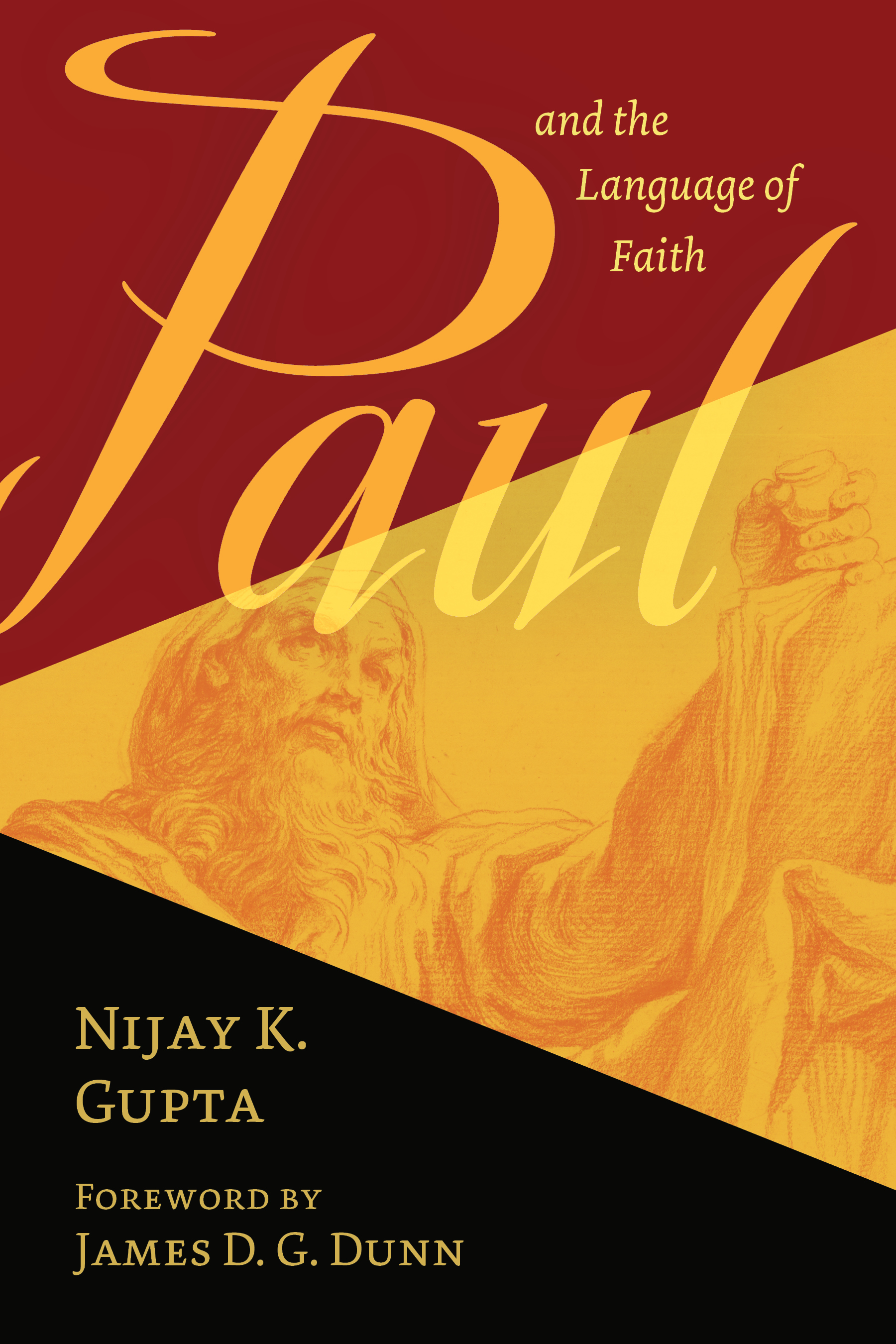A dynamic reading of Paul’s faith language, outlining its subtle nuances as belief, trust, and faithfulness.Faith language permeates the letters of Paul. Yet, its exact meaning is not always cle
A dynamic reading of Paul’s faith language, outlining its subtle nuances as belief, trust, and faithfulness.
Faith language permeates the letters of Paul. Yet, its exact meaning is not always clear. Many today, reflecting centuries of interpretation, consider belief in Jesus to be a passive act. In this important book, Nijay Gupta challenges common assumptions in the interpretation of Paul and calls for a reexamination of Paul’s faith language. Gupta argues that Paul’s faith language resonates with a Jewish understanding of covenant involving goodwill, trust, and expectation. Paul’s understanding of faith involves the transformation of one’s perception of God and the world through Christ, relational dependence on Christ, as well as active loyalty to Christ.
Pastors and scholars alike will benefit from this close examination of Paul’s understanding and use of faith language. For Gupta, Paul’s understanding involves a divine-human relationship centered on Christ that believes, trusts, and obeys.
Michael F. Bird
— Ridley College
“Nijay Gupta presents here the best contemporary exploration of the meaning of ‘faith’ and ‘believing’ in the Christian Bible. He leaves no stone unturned as he covers topics like faith as doctrine, virtue, allegiance, trust, obedience, and fidelity, among other things. Along the way Gupta cracks open a few hoary chestnuts like the ‘faithfulness of Christ’ and faith as a social boundary marker, always with clarity and acumen. All in all, a wonderful exposition of the meaning of faith in the biblical world.”
Matthew V. Novenson
— University of Edinburgh
“Nijay Gupta has again proved himself to be one of the best and most interesting young exegetes now working. In this impressive book, he gives us, among other things: an up-to-date, incisive treatment of the pistis christou debate; an argument for ‘covenantal pistism’ as a gloss for Paul’s pattern of religion; and a bridge from the classic interpretations of Luther and Calvin to recent proposals from Benjamin Schliesser, Teresa Morgan, and others. Throughout, Gupta writes with a historical critic’s keen eye for textual detail and a theologian’s sense of the considerable stakes of these discussions. Paul and the Language of Faith is a reliable guide for students and a valuable resource for scholars.”
James D. G. Dunn
— from the foreword
“A clear discussion of the biblical, particularly Pauline concept of faith, its breadth and its specifics. Reading it with care will strengthen and perhaps correct the reader’s understanding of faith. Who could ask for more?”
View Review quote
Nijay K. Gupta is Associate Professor of New Testament at Portland Seminary at George Fox University. He has written 1 and 2 Thessalonians in the Zondervan Critical Introductions to the New Testament Series and is co-editor of The State of New Testament Studies with Scot McKnight. Gupta lives in Portland, OR.
View Biographical note
Table of Contents
1. Introduction
2. Faith in Paul: A Brief History
3. Π?στις in Ancient Non-Jewish and Jewish Literature
4. Faith Language in the Jesus Tradition
5. Faithfulness is Better: Π?στις in 1 Thessalonians and Philippians
6 Strange Wisdom: The Cross’s Wisdom and the Humble Foolishness of Faith in 1 Corinthians
7 On Faith and Forms: Πιστις and True Ministry in 2 Corinthians
8 Covenantal Pistism: Π?στις in Galatians
9 And the Righteous Will Live by Trust: Faith Language in Romans 1:16–17
10. Π?στις Χριστο? and the Christ-Relation in Paul
11. Synthesis and Conclusion
View Table of contents
